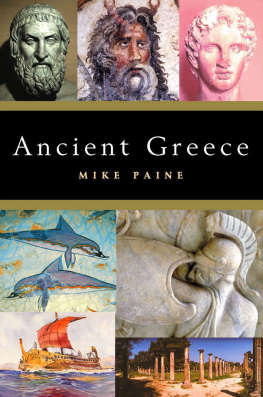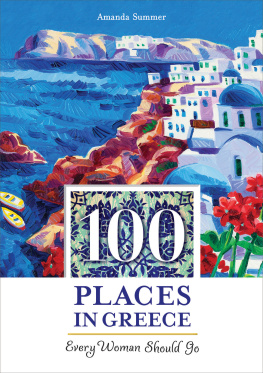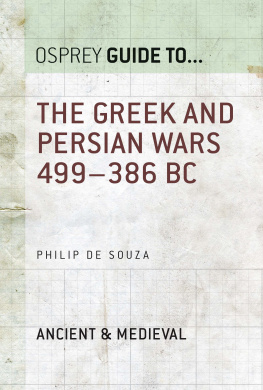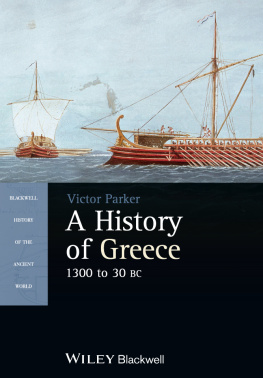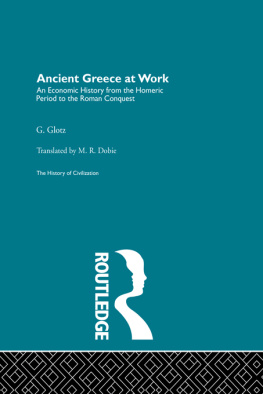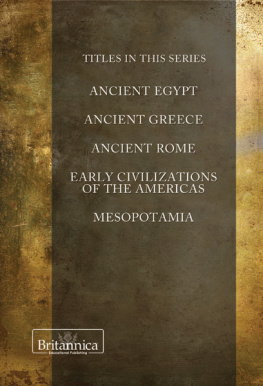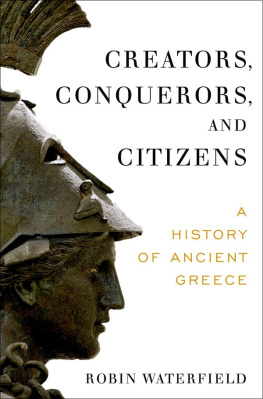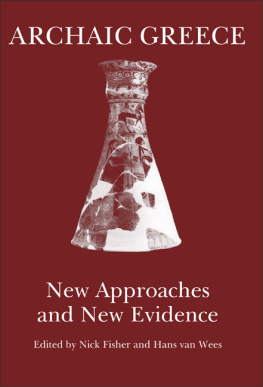Western civilization began with the Greeks. From the highpoint of the fifth century BC through the cultural triumphs of the Alexandrian era to their impact on the developing Roman Empire, the Greeks shaped the philosophy, art, architecture and literature of the Mediterranean world.
Beginning with the Homeric period, once believed to be a realm of myth, Mike Paine takes the reader on a journey through twelve centuries and more of Greek culture. He shows what archaeologists have revealed of the Trojan Wars and Mycenae, outlines the glories of Athens at its height and provides a gripping narrative of the struggle between the Greeks and the mighty Persian empire. The careers of great political and military leaders like Pericles and Alexander the Great are highlighted and the importance of the great philosophers like Plato and Aristotle is demonstrated. Dramatists and demagogues, stoics and epicureans, aristocrats and helots all take their place in the unfolding story of the Greek achievement.
Mike Paine works as a bookseller, writer and musician in North London. He has written on Thomas Bernhard and Blaise Pascal, amongst others, and has played guitar for P.J. Harvey.
Other books in this series by the same author
The Crusades
Ancient Greece
MIKE PAINE
POCKET ESSENTIALS
Acknowledgements
Thanks are due particularly to my editor, Nick Rennison, and my publisher, Ion Mills, for their support, particularly during the latter stages of the writing of this book.
Contents
Introduction:
The Geography of Greece
Introduction: The Geography of Greece
Today the country of Greece consists of the mainly mountainous land that forms the end of the Balkan peninsula and the numerous islands that lie in the Aegean Sea to its east, the Ionian Sea to the west, and the Mediterranean Sea to the south. Roughly comparable in size to England its glories similarly lie in the past. Civilisation reached it first from the south, before radiating north wards and thus the great cultures and civilisations that dominate its past follow roughly this same path north. It borders Albania, Bulgaria and Macedonia to the north the latter representing part of the ancient Greek kingdom of Macedonia, an entity divided between Greece, Bulgaria and Serbia at the end of the Balkan Wars (191213). From Macedonian Greece, the Balkan peninsula narrows, heading southeast, until we come across many of the famous classical settlements, from Thebes to Athens. To the south west, connected to the mainland by a thin strip of land called the Isthmus of Corinth (named after the city at its southern end) is the Peloponnese, with Arcadia at its centre and Sparta to the south. Beyond this are the many islands, over 2,000 of them, that make up nearly 20% of the country. The Ionian Islands to the west include Ithaca, famed in antiquity as the home of Odysseus. In the southern Aegean are the Cyclades, some thirty islands, among them Delos and Naxos, whose prehistory saw a culture characterised today by mysterious sculptures of elegant, folded-arm nudes. Beyond them, towards the Turkish coast, are the Dodecanese whose largest isle, Rhodes, was famed for one of the Seven Wonders of the Ancient World the Colossus. Further north along the Turkish coast are Samos, Chios and Lesbos the latter home to the most famous female poet of classical times, Sappho. At the very southern end of the Aegean lies the largest of the Greek islands, Crete, home to the first true Greek civilisation in the second millennium before the birth of Christ.
Ancient Greece, however, extended further than this. First to be colonised at some point in prehistory was the western coast of Turkey. During the eighth century BC, colonies were founded along the southern Turkish coast and the Levant, and also in Sicily. The seventh and sixth centuries saw the time of greatest expansion. The Black Sea was ringed by Greek settlements; towns sprung up scattered across the Southern Italian littoral. Southern France, Corsica, Egypt, Libya, even Southern Spain close to the Straits of Gibraltar saw settlement by the Greeks.
The history of Ancient Greece at it simplest breaks down into three periods. In the first period, the story is of the great and mysterious civilisations that preceded Classical Greek society, the Minoans and the Mycenaeans. After their collapse and the subsequent Dark Age that followed comes the second period in which Greece follows a path that eventually leads to it enjoying the status of the most important cultural, military and political force among the countries bordering the Mediterranean at that time. The third period is the story of the Hellenistic Age, a time of new empires frequently in conflict with each other until their eventual conquest by the expanding Roman Empire. The story of the Ancient Greeks does not quite end there. As servants of Rome, their influence upon their rulers, socially and culturally, was as strong as it was when they were independent. Rome may have won the final military victory but it may not have won the cultural war.
Minoan and Mycenaean Greece
1. Minoan and Mycenaean Greece
At ancient and beautiful Smyrna now the busy Turkish port of Izmir Homer, the greatest poet of the Ancient Greeks, was born. Or so the inhabitants of that city claimed. They were not unique in this: numerous old cities of Greece vied with one another to claim the author of the two greatest epics, the Iliad and the Odyssey, as one of their own. The only evidence for his life is in the poems themselves a few small details in the Iliad and the preponderance in the poem of the Ionic dialect hints that his home was somewhere along what is now the west coast of Turkey, or on one of the nearby isles. So Smyrna's conviction that his birth place was somewhere along its sheltered bay is no more unlikely than many other such claims. In truth we know nothing of his life. Even the famous portrayal of him as a blind man is nothing more than a literary convention.
The Greeks themselves were aware of this. By the Hellenistic period, Greek scholars at the Library of Alexandria were speculating that different authors lay behind the two epics. In the present day we go even further than this, qualifying our understanding of Homer's role as author. Close analysis of the poems has made it clear that their origins were oral. Certain stock phrases the famous 'wine-dark' sea for instance and constructions (e.g. the frequent and similar descriptions of the heroes preparing themselves for battle) indicate that both poems in some form or other were recited by bardic figures using these rhetorical props to aid in their long recitations. We will never know to what extent each poem is the work of one man not that this detracts from their importance and achievement as among the greatest literary works of western civilisation.
The Iliad has been tentatively dated as having been written in the early part of the eighth century, the Odyssey is thought in turn to have first been written down some fifty years later. These greatest of Greek poems are also the earliest to survive, written in the new script adopted by the Greeks from the Phoenicians, a semitic script that was probably first encountered by Greek traders visiting the Phoenician cities and ports of the eastern Mediterranean.
The Iliad is a tale of a Greek army in Asia Minor, a brief episode in the legendary ten year Trojan War. The war itself begins after Paris, son of the Trojan King Priam, elopes with the fabled beauty Helen (Marlowe's 'face that launched a thousand ships, and burnt the topless towers of Ilium' in his Doctor Faustus), wife of Menelaus, King of Sparta. Under the command of Menelaus's brother, Agamemnon, King of Mycenae, the Greek forces sail to Troy to recover Helen and punish the Trojans. They lay siege to the city for ten long years. Eventually, through the ruse of a great wooden horse whose hollow belly contains Greek soldiers (the source of the proverb 'Beware Greeks bearing gifts'), they enter and sack Troy. The

